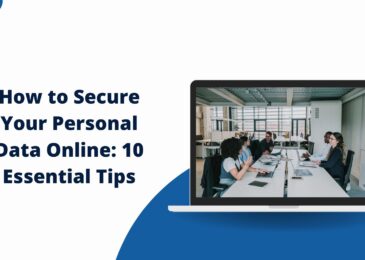MarketingCharts did a survey five years ago asking marketing experts about challenges they encountered in their profession. Interestingly, SEO ranked as the third most effective though the second most difficult digital marketing tactic. Around 50% of marketing professionals called it the most formidable challenge to overcome. Search engine optimization is the digital democracy where the most relevant websites appear on the first page. It’s Google’s algorithm that determines which websites deserve to rank higher than others. If you wish to attract a larger audience, you need to achieve better search engine rankings. That makes SEO crucial for your brand’s survival and growth.

Components of a strong SEO strategy
Let’s ask the obvious question first. What counts as an SEO strategy? It’s everything that improves your website’s position on SERPs to generate more organic traffic. An effective SEO strategy stands on some strong pillars such as on-page and off-page SEO, content marketing, link-building, and other features. A combined influence of these tactics convinces search engines that your site is trustworthy, authoritative, and provides valuable information. Before diving in, you should note that a “winning” strategy can look different between industries. For example, SaaS SEO strategies that work well can look entirely different than Retail SEO strategies. Here are the components of a winning SEO plan explained:
- Setting your goals:-
The first step of creating a viable SEO strategy is setting goals and expectations. Remember that unrealistic aims that aren’t affordable within a limited budget may damage your marketing efforts. That’s why it’s essential to determine pragmatic objectives your company can achieve economically. Only pursue achievable goals, which you’ll continue tracking via key performance indicators. These expectations can be different for a different company due to multiple factors.
- Keywords:-
Know the keywords customers utilize to reach your website. Dig a little deeper into your target audience’s search intent. Explore from your niche’s perspective. How does an average customer type his/her query on a search engine? What words or sentences does he/she use? Consider thesaurus to find synonyms for your most important keywords. Focus also on keyphrases instead of mere words. Dig out more phrases and try Google’s AdWords tool for your investigation.
- Lead magnets:-
Email list-building allows you to communicate effectively with customers who have shown interest in your product/services. Lead magnets will enable you to attract these potential leads. You can offer stuff like videos, coupons, eBooks, or case studies in exchange for the visitor’s contact details. Try a digital lead magnet creator togain attention online instantly. These creators will guide you through the process of producing useful leads and generating better list-building results.
- Create useful content:-
These leads will require high-quality content without which they won’t be convinced to reveal their contact information. Content dominates the SEO industry along with backlinks. High-quality content improves your website’s reputation. So, produce interactive and conversational blogs/articles that educate your customer with authentic information. Avoid grammatical mistakes in your writing, and embellish this content with images, videos, and infographics.
- Link-building:-
It would help if you had other websites linking back to your website. That’s how you build authority and convince the search engine algorithm that you own a reliable brand. The more high-quality hyperlinks you receive, the better rankings you acquire. That’s why you need some “hook” to entice visitors for sharing or linking back to your content. Produce something of value so people can willingly refer to your website.
- Image optimization:-
When customers search for a product, they don’t just read your content. They’re also looking at the images of products. Since these consumers have a short attention span, your pictures must load quickly. Image optimization deals with reducing the image’s file-size without disturbing its quality. Hence, it appears immediately before a visitor’s sight, and your website ranks higher in image searches. Adding relevant keywords in file-names also improves your SEO results.
- Better customer experience:-
Make sure that your customers have no problem navigating your website. Your website must be mobile-optimized since Google now evaluates your domain based on its smartphone performance. Therefore, the design and layout of the entire site also matter in this case. Around 40% of online users don’t visit a website with a poor design or slow-loading images. Moreover, 60-70% of guests don’t make a second visit. So, do not give these people another reason never to come back.
- Social media:-
Your brand’s presence on social media platforms is essential for its mass recognition. Being active on Facebook and Twitter shows search engines your influence and authority. Even though sharing content on these platforms doesn’t necessarily count as backlinks, search engines crawl to your social media avatars and utilize them in indexing. That’s why active social channels contribute to your online visibility and make your organization more popular.
- Employ experts:-
Learning SEO isn’t difficult anymore. You can find some online courses and teach yourself the basics of search engine optimization. Watching short videos on YouTube can also increase your know-how regarding this subject. But hiring SEO professionals has always proven to be a profitable decision. Since these experts ascertain that your website’s optimized for search engines, don’t worry if you aren’t an SEO wizard. Consider outsourcing and employing external assistance.
- Think differently:-
Small businesses work with limited resources and careful budgetary restrictions. That’s why you must be imaginative with how to increase organic traffic to your website. Go for voice-search optimization and also try search engines such as Yahoo/Baidu. Google’s global search engine market share exceeded 85% last month. But Bing stood as Google’s successor with around 7% of desktop market share. So, don’t forget to consider these diverse options too.
- Learn from competitors:-
Online tools allow you to observe your competitors’ SEO strategy. Monitoring your rivals’ progress is crucial for improving the flaws in your plannings. For instance, investigate where your competitors are getting backlinks from and then approach these sources. But that doesn’t mean you should adopt the custom of blind imitation. Not every technique works for all websites. Moreover, focus exclusively on websites that are targeting your niche.
Conclusion
It is 2021, and most entrepreneurs realize the importance of search engine optimization for business growth. This technique helps them enhance SERPs, increase digital traffic, and get better conversion rates. Unfortunately, just one-third of small businesses had an SEO strategy back in 2019, while one-fifth of them planned to establish one. Many companies rely on “shortcuts” they have found on the internet to generate instant results. However, proper and effective SEO requires diligence, determination, and commitment. You need to construct valuable content to bring about tangible outcomes. Such a winning SEO strategy can transform your website into a continuous revenue-generating stream.






